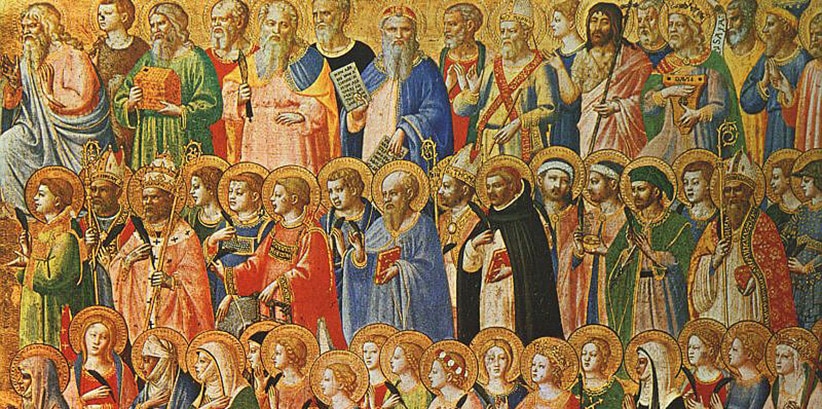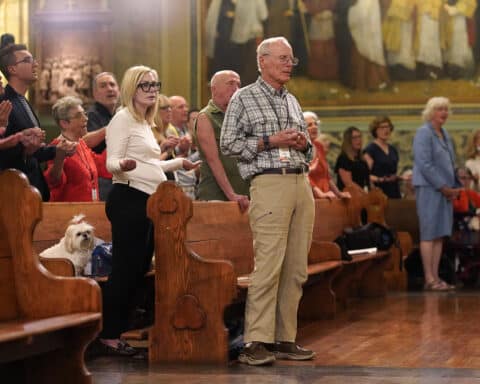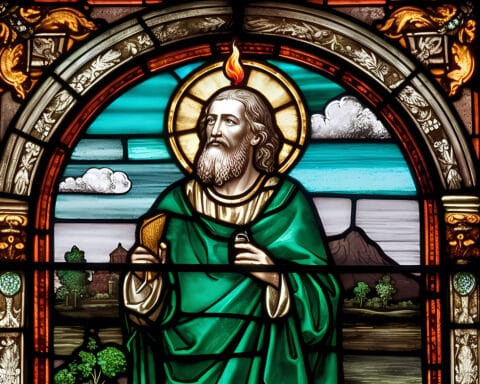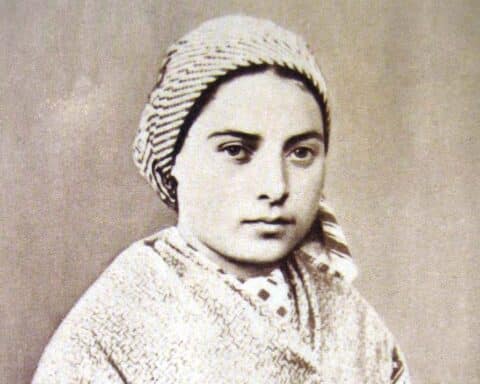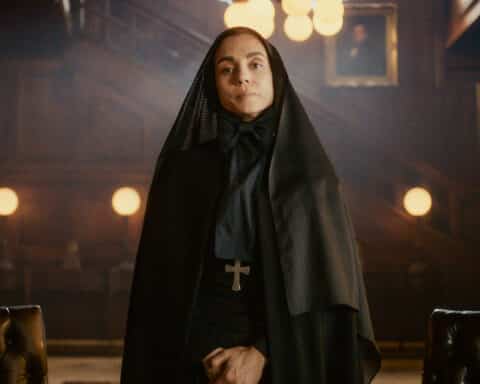
This campaign has once more manifested the divided nature of the American people. The possibility of post-election violence, even by a few, is a real threat within our cities. Even if such hostility does not unfold, there remains the violence of an interior and simmering hatred of the neighbor who is not like us.
In a kind of anti-liturgy, this hidden violence causes us to think to ourselves, “It is their fault, their fault their most grievous fault.” And somehow, someway, they must pay either through cold indifference or through violence expulsion from the human community.
Into this fracas of hatred, injustice and the impossibility of forgiveness, comes the feast of All Saints.
| November 1 – Solemnity of All Saints |
|---|
|
Rv 7:2-4, 9-14
Ps 24:1-2, 3-4, 5-6
1 Jn 3:1-3
Mt 5:1-12
|
We have overly-romanticized this feast. It is generally the day in which children dress up as their favorite saint, imitating the virtues of their saintly forebears.
The roots of this feast contradict this romanticization. The feast of All Saints originated as a devotion to relics in the city of Rome. The bodies of the saints, especially the martyrs, were venerated on this day.
In Catholicism, sainthood and martyrdom are inextricably linked. After all, in the Book of Revelation, who is the saint? It is the great multitude, standing beneath the altar of the Lamb once slain. This great multitude represents all the martyrs, those who have borne witness to the Lamb once slain even unto their own death.
The great multitude does not perform an anti-liturgy of blame. No! The great multitude does homage before the Lamb once slain, bending their knees before the living God. There is no hostility within this liturgical city of saints. They act as one body, praising the living God.
What hope is there for us — those of us trudging in this valley of tears and death — to experience this saintly existence of love, unity and homage before God alone?
The Beatitudes, in the Gospel of Matthew, are the constitution for this city of saints. Who are the blessed, the citizens of heaven? The poor in spirit, the mourners, the meek, those who hunger and thirst for righteousness, the merciful, the clean of heart, the peacemakers, and the persecuted and the insulted.
It is not those with power and prestige who have prominence in the city of God. Might does not make right, power politics do not conquer. It is those who lack, who are empty before God and neighbor, who are the blessed.
Whatever happens on Nov. 3, the politics of the saints may be exercised. The great lie of the earthly city is that the only politics that matter unfolds in the halls of power in Washington, D.C.
But politics is about the communion of the city, the cultivating of friendship between men and women in day-to-day life.
We, Catholics, must practice this saintly politics, especially now. We must be poor like Christ, mourn with those who mourn, not seek our own will at every cost, remember those who are forgotten, forgive those who offend, recognize our poverty before God, make peace, and be willing to suffer for doing all of this.
Everything that we do, every decision we make, every thought we have, must be infused with this beatific constitution.
On Nov. 3, and well after, let us witness to the politics of the saints, of the martyrs who spilled their blood for the love of the Lamb once slain.
All ye holy men and women, pray for us, especially now.
Timothy P. O’Malley, Ph.D., is the director of education at the McGrath Institute for Church Life at the University of Notre Dame.

